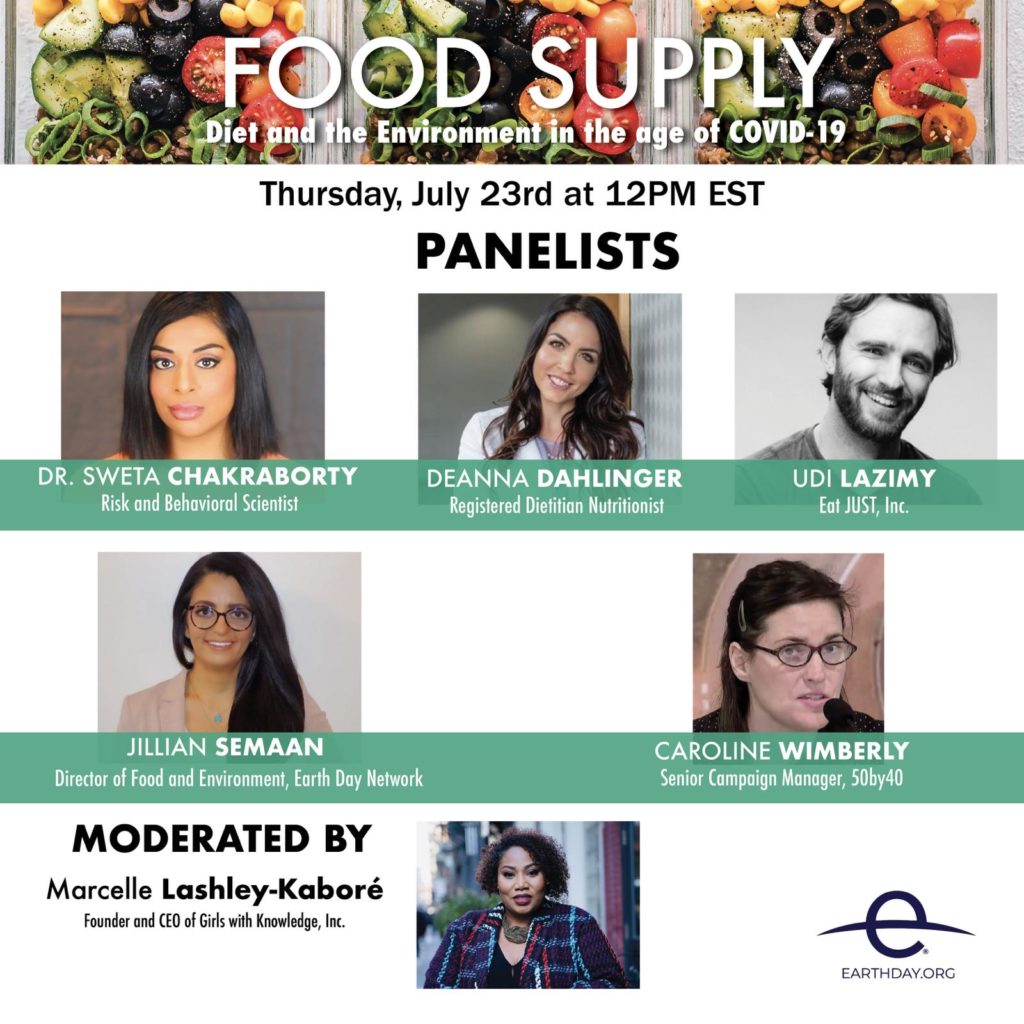Foodprints for the Future
Foodprints webinar will examine the link between our food supply, shifting diets and behaviors during COVID-19
July 21, 2020
As the global pandemic persists, it’s time we start recognizing the complex role food plays in the health of our communities and the planet. Many questions surround COVID-19, from where it originated; to whether our food supply can withstand it; to the link between plant-based diets, the environment, human behavior and future pandemics.
Whether COVID-19 originated from bats or pangolins, it’s clear there is a causation between China’s consumption of wild animals and the disease killing thousands of people worldwide. Now is the time to link human health with biodiversity loss and animal suffering to close all markets selling dead or live wild animals.
“It boggles my mind how when we have so many diseases that emanate out of the unusual human-animal interface, that we don’t just shut it down,” said Dr. Anthony Fauci, the United States’ top epidemiologist.
Another issue that seems to be on everyone’s mind is the possibility of a food shortage. Is our food supply really at risk? With empty store shelves, meatpackers dying on the front lines and factory farms continuing business as usual, society is mired in speculation and distress. Meat shortages have become an environmental concern driving many people to experiment with plant-based foods.
This pandemic has made one thing clear — the food we eat needs to serve our bodies and the planet.
Join Earth Day Network and a panel of experts Thursday, July 23rd at 12PM EST as we explore our food supply, shifting diets and behaviors in the COVID-19 era. You can register here and stream the event live on Facebook.

We have an exciting lineup. Dr. Sweta Charkraborty, a risk and behavioral scientist, will address behaviors of our choices and consequences to our actions as it pertains to COVID-19 and our food system. Registered dietician Deanna Dahlinger will discuss plant-based nutrition, how you can transition to a plant-based diet and how it can boost your immunity to viral infections. Udi Lazimy, global director of sourcing and sustainability at Eat JUST, will talk about innovative plant-based food technology and barriers around purchasing and accessibility. Caroline Wimberly of 50by40 will lead a conversation on banning factory farms and curbing global meat production. Finally, I will discuss the nexus between food and environment, the “Climate Change and the American Diet” report from EDN and the Yale Program on Climate Change Communication and how we can implement change.
Together, we can take steps to improve the health of each other and the planet while addressing food supply and scarcity issues. We hope you can join us!
